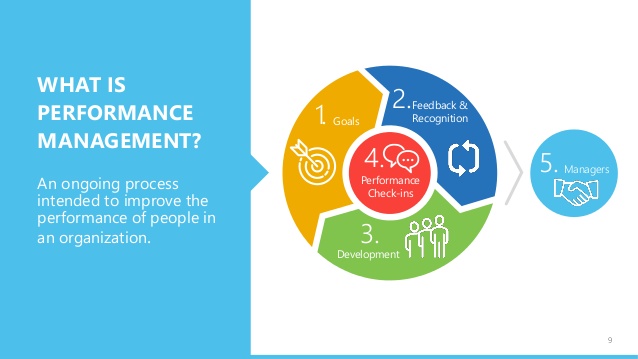Below are two workable definitions of performance management:
|
Performance management is a strategic process that (1) links what individuals and teams do daily with the larger goals, values and cultural practices of the organisation and the needs of its customers; (2) it is a process for establishing a shared understanding about what is to be achieved and how it is to be achieved; (3) it is an approach to managing people that, when done well, contributes to an enduring and healthy organisation. |
|
Performance management is the process of planning, implementing, monitoring, improving, and sustaining the efficiency and effectiveness of organisations, teams and individuals. |

Click here to view a video on Basics Performance Management.
When examined closely, these definitions have three main concepts. It indicates that the process applies at three integrated levels namely:
- The organisation as a whole.
- Units within the organisation (divisions, departments, teams, etc.).
- Individual staff members.
It indicates that the process has five major components:
- Planning and contracting performance requirements.
- Implementing planned activities.
- Monitoring and measuring performance levels.
- Improving activities.
- Sustaining achieved performance levels.
It is important to realise that improving efficiency and effectiveness refers to both whether in individuals, teams, or organisational context:
- Improving performance; and
- Developing skills and knowledge.
In summary, it can be concluded that performance management encompasses both the aspects of performance improvement and the development of human resources. Performance can only be improved to a point without the development of the skills and knowledge of the people from whom the improved performance is expected. The most effective performance management system, therefore, focuses on these two diverse aspects of performance management separately: “What the company gets out of it” and “What the employees get out of it.” It needs to be a balanced, two-way beneficial agreement if you want to ensure success.
The performance management system should therefore,
- focus on performance improvement to achieve the organisation’s current performance requirements with current available human resource potential.
- focus on the development of human resources to enable the organisation to reach its vision and future performance objectives such as reducing cost, improving quality, and increasing productivity in an ever-changing competitive environment.
Although these two issues cannot really be separated from each other, it is advisable to address them separately for functional purposes.